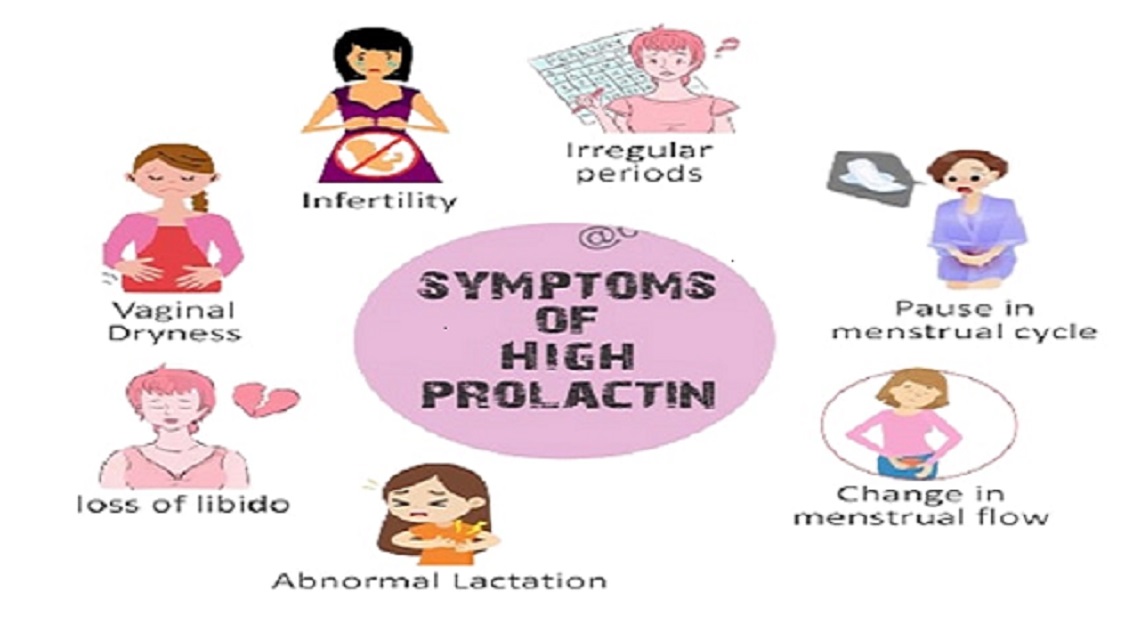Physical and emotional well-being are impacted by prolactin, a hormone often associated with pregnancy and breastfeeding. This article delves into the intricate web of connections between prolactin and mental health, exploring how this hormone influences temperament, emotions, stress response, and more. By understanding the many roles that prolactin plays in the brain and body, it may be feasible to create therapeutic approaches and medicines that improve mental health.
Prolactin is what?
The main roles of prolactin are in lactation and breastfeeding. But it’s necessary for other vital processes in the body.
The Role of Prolactin in Physiology
Not only does prolactin play a part in breastfeeding, but it also helps with reproductive health, managing immunology, and changing behavior.
Connections between neurotransmitters
A person’s mood and emotional reactions may be influenced by prolactin via its interactions with several neurotransmitters in the brain.
Managing Emotional Reactions
According to study, prolactin could have a role in controlling how we feel and how we deal with stress.
Prolactin and Stress Reactions
Anxiety may impact prolactin levels, which impact the way the body reacts to stress.
Cabergoline 0.5mg is used to treat a variety of illnesses that arise from excessive production of the hormone prolactin. It may be used to treat pituitary prolactinomas, which are tumors of the pituitary gland, as well as certain menstruation issues and issues with fertility in both sexes.
Hormonal, Psychiatric, and Hypothalamic-Adrenal Axis Factors
In reaction to stress, the body’s HPA axis is regulated by prolactin. Elevated prolactin levels are linked to mental health issues. Depression and anxiety disorders are associated with elevated prolactin levels, according to the research.
Studying Prolactin Levels in Schizophrenia
According to several studies, more study is needed to fully understand the connection between prolactin levels and schizophrenia.
Anxiety and Prolactin: How They Are Related
Anxiety may also be influenced by prolactin, a hormone associated with breastfeeding. A complicated network of worry may represent the neurobiological mechanisms in the brain that are linked to anxiety. This mental condition warrants an investigation of prolactin’s function.
How anxiety develops in the brain
When we’re anxious, that nagging feeling of unease, our thoughts may go to remarkable lengths. Complex interplay between hormones, brain areas, and neurotransmitters defines this process. As a supporting player, prolactin may be part of this anxiety symphony.
Anxiety disorders and prolactin control
When we suffer from anxiety problems, it may mess with our brains. It should be noted that according to studies, people with anxiety may have different amounts of prolactin. Understanding the control of prolactin in different situations may provide light on potential therapeutic approaches.
Postpartum Depression and the Role of Prolactin
Mood swings after giving birth could be a sign of postpartum depression. Although prolactin is most often associated with its function in breastfeeding, it may also have an effect on the mental health of new moms. Our focus here will be on the effects of this hormone on the postpartum mental state.
Levels of Prolactin and Postpartum Depression
Postpartum depression may make the benefits of motherhood less appealing. New evidence points to a possible link between prolactin levels and the beginning of postpartum depression. Improving mothers’ mental health may be possible with the help of insights gained from studying this relationship.
Maternal connection and prolactin
It’s not uncommon for mother-child connections to be as strong as superglue. It is possible that prolactin’s role in maternal behavior facilitates this particular interaction. To better comprehend the bond between mother and child, it would be beneficial to study how prolactin affects maternal attachment.
Cabergoline Treat high concentration of the hormone prolactin in the blood is known as hyperprolactinemia. During breastfeeding, the pituitary gland releases the hormone prolactin, which primarily boosts milk production. Among the many health issues that may arise from an abnormal rise in prolactin levels are menstrual cycle abnormalities, infertility, and erectile dysfunction. Cabergoline eliminates these issues by regulating prolactin levels.
Methods for Improving Mental Health by Controlling Prolactin Levels
Maintaining a good balance in prolactin levels may be crucial for our mental wellness. Reducing prolactin levels for mental health purposes is possible via a number of approaches, such as pharmacological interventions and behavioral changes.
Effects of lifestyle variables on serum prolactin concentrations
Unconsciously changed lifestyle choices have the potential to affect prolactin levels. Diet, stress, and sleep all have a role in prolactin production. Once we understand how these things impact prolactin, it may be simpler to make choices that benefit our mental health.
Approaches to Treating Prolactin Dysregulation in Mental Health Settings
Having a toolbox full of therapeutic techniques may be game-changing in the field of mental health. To improve mental health, prolactin levels may be regulated in a variety of ways, including medicine, psychotherapy, and new treatments.
In conclusion, there are a plethora of chances for clinical and scientific study inside the complex and dynamic area of prolactin’s role in mental health. Better knowledge and treatment of many mental health issues may be possible if the link between hormone regulation and psychological well-being can be better understood. Brain studies on prolactin may lead to novel treatments that place an emphasis on holistic mental health care.

